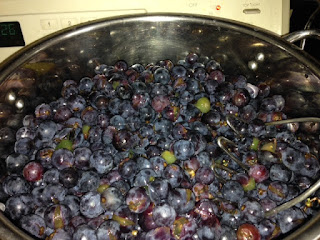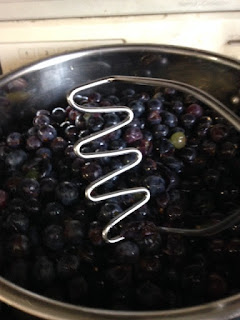In our state, students are required to have four credits of English to graduate high school. Language Arts is a broad term that covers English Grammar, Writing, Composition, Spelling, Vocabulary, Literature, and Critical Thinking Skills. Our goal in our home school is to cover all these areas of Language Arts for four years, which is equivalent to four credits.
Thanks to our core curriculum, A Beka, all of these areas are thoroughly integrated into our daily high school program, so there is not a whole lot extra for me to plan to make up the difference. There are a few programs that I have added to reinforce weak areas that my girls have had, and I will write about them here - how they have helped and enhanced our core curriculum.
Grammar
While I have read much debate in the homeschooling community about whether sentence diagramming is a necessity or not, I would like to advocate that it most certainly is a helpful skill to learn. Being able to pick a sentence apart and correctly identify each part of speech will help the student in so many ways, including comprehension and improvement in their own writing. Not only that, but learning to properly use punctuation will also make their writing stand out above the crowd, especially as an adult.
Many of the secondary grammar skills, such as identifying various types of clauses and infinitives, are greatly aided when a student learns proper grammar structure. My advice would be to not neglect diagramming and a solid foundation in grammar and punctuation. It should be covered every year starting young, and reviewed every year on a deeper level, until graduation. Most of us never truly 'master' grammar skills, so there is no harm in reviewing them annually for the high school student. Many of their future needed skills in life, including college essays, interviews, scholarship essays, and other job skills will benefit from strong and proper grammar usage.
Writing and Composition
The best way to improve a student's writing is to encourage them to be a reader of fine literature. They will grow accustomed to knowing how sentences are "supposed to sound" and will recognize when their writing is deficient.
While there are many ways to improve writing skills, one of the best ways is to practice, practice, practice! Teach your student to proof read their own work, and re-write when necessary. Edit their papers with a constructively critical eye, and show them how to re-write anything that is less than sound. If you have suggestions for polishing their work, give it. Often students can recognize that their writing 'needs something' but they are not sure exactly how to improve. One thing I have done when correcting and editing is to give two different options for a sentence that needed better structure, then allow the student to choose which one they preferred.
Students should practice writing all types of different papers: research papers, editorials, persuasive essays, dialogues, and journaling are just a few ways to practice various types of writing.
One area that our students found troublesome was writing a biographical sketch. They found it difficult to write about themselves! We used a wonderful program called Fortuigence that assisted in teaching how to layout and construct an essay. We happened to review the "personal statement" program, which was a great help in teaching how to write a biographical sketch without sounding too awkward. The techniques taught in this program are still being used by my now-college student in her essay writing!
Spelling and Vocabulary
Just because they are done with elementary school does not mean high schoolers can let spelling and vocabulary words fall to the wayside! On the contrary, proper spelling makes their writing appear more professional, and good vocabulary words are essential to writing and reading high school level papers and literature! Besides all that, the reading section of the SAT is comprised mostly of questions that demonstrate a strong vocabulary.
There are two programs we have used as resources to assist in spelling and vocabulary. My top go-to program is Vocabulary Spelling City, which can be used for all grade levels, but is especially helpful for review at the high school level. Parents can enter their own lists for the student to practice, or can assign pre-programmed lists. There are SAT vocabulary practice lists already on the program.
For specific SAT type practice, I have found that Wordly Wise is a great program to prepare the student for word analogies, which can be quite challenging. In just a few minutes a day, the student can adequately prepare for the SAT by using either the book or online version.
Literature
Promoting reading and interpreting Literature is one of the most important skills that a high schooler must learn. Readers will continue to educate themselves far past their graduation. If you have a reluctant reader, find material that sparks their interest and run with it. Work with them. Read together and discuss the material. It is vital that high schoolers learn how to read with understanding.
Reading the Bible is imperative not only for Christian growth, but to instill a daily personal walk with God in your high schooler's life, and to guide them in their understanding. If your high school student struggles with their daily devotions and Bible reading, then find a program that will help them read through their Bibles, and perhaps take notes or answer questions about what they read. Read it together as a family, so they can enjoy it and learn from others.
Pearson has published a suggested high school reading list of works that a high school student should be familiar with before graduation. Not all may be appropriate for your family's values, but I have found that reading and discussing literature with your high school student, even things that we might deem inappropriate, allows a great opportunity for the parent to point out the flaws and instill good character in their children. Covering age-appropriate vices in literature helps prepare the student for adult life when they will face these topics on their own without the benefit of parental guidance at their side.
During high school, it is important to have the student read early American literature as well as early English literature. So much of what has been written reflects the culture and aids in understanding history.
Literature also includes Poetry. Some students are naturals at poetry, while others have to really work at it. Any good Literature program in high school will also contain an in-depth look at the various styles of poetry as well as reading and interpreting famous poems. Expose your student to some of the great poems of history, as well as your own personal favorites. You never know when they might take a liking to a certain poet and develop a taste for it. I even have my students memorize poems that I have found useful for character building. I have found that even though the complained a little, they really enjoyed having those poems committed to memory.
These are just a few of my ideas and suggestions for enhancing Language Arts in your home school high school. This is really just scratching the surface of the vast materials that are available. If something is not working, do your diligence and find what does. The Old Schoolhouse Review Crew has a vast number of resources and reviews to help parents find suitable materials, and has a specific Language Arts Pinterest Board with many great ideas for home school parents to use.
Ready for some more ideas? Visit the other blogs on the Homeschooling High School Blog Hop:
Carol from Home Sweet life shares Homeschooling High School- Language Arts (&History!)
Leah from As We Walk Along the Road shares Teaching Language Arts in High School: Curriculum and Activity Choices
Tess from Circling Through This Life shares Teaching High School Language Arts: Resources
Michele from Family, Faith and Fridays shares Language Arts
Wendy from Life at Rossmont shares Highschool Language Arts
Erica from Be the One shares Language Arts Resources
Kym from Homeschool Coffee Break shares History in the Form of Stories
Debbie from Debbie’s Homeschool Corner shares Teaching High School English































